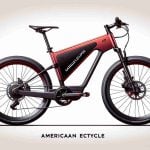In a significant initiative aimed at advancing electric vehicle (EV) technology for heavy-duty trucks, Terawatt Infrastructure, a company based in the United States, is set to implement charging infrastructure along the I-10 corridor. This development will include comprehensive support services such as software management and operations assistance at six strategic charging locations.
The initiative is part of a broader coalition spearheaded by the Smart Freight Center, a non-profit organization based in the Netherlands dedicated to promoting sustainable practices in the freight industry. Notable participants in this coalition are major logistics players including AIT Worldwide Logistics, DB Schenker, Maersk, Microsoft, and PepsiCo. Together, they plan to evaluate the effectiveness of long-haul heavy-duty EV operations, specifically between Los Angeles, California, and El Paso, Texas.
The primary goal of this collaborative effort is to demonstrate how electric trucks can significantly reduce greenhouse gas emissions while also working towards cost efficiency in long-haul operations. By gathering essential data and fostering a supportive ecosystem for electric trucks, the coalition seeks to encourage more shippers and carriers to transition toward electric fleets, urging technology developers to innovate effective solutions for electric logistics.
Through this joint endeavor, stakeholders aim to facilitate the rapid transition to electric trucking, confirming that a reliable electric truck corridor can be established and expanded effectively as demand grows.
Innovative Charging Solutions: Tips and Insights for a Sustainable Future
As the world makes the shift towards sustainable transportation, innovative charging solutions are paving the way for heavy-duty electric vehicles (EVs). With initiatives like Terawatt Infrastructure’s charging project along the I-10 corridor, it’s important to understand how these developments can influence your life, work, and education. Here are some tips and interesting facts about the ongoing transition to electric mobility that can benefit everyone.
1. Embrace the Electric Future
Heavy-duty electric vehicles are becoming increasingly viable. Both industries and individual consumers should start considering the transition to EVs for their fleets or personal use. Factors like declining battery costs and improved charging infrastructure make this a prime time for adopting electric mobility.
2. Understand the Importance of Infrastructure
The success of electric trucking heavily hinges on robust charging infrastructure. Projects like Terawatt Infrastructure’s initiative highlight how strategic planning can facilitate long-haul electric operations. Supporting local initiatives, whether through advocacy or participation, can help improve EV infrastructure in your community.
3. Learn About Financial Incentives
Many governments and organizations offer incentives for transitioning to electric vehicles, which can significantly offset costs. Research available rebates, tax credits, or grants for electric vehicle purchases, especially for businesses involved in logistics or freight.
4. Stay Informed About Industry Trends
Keeping abreast of developments in the electric vehicle landscape is crucial. Subscribe to newsletters or follow reputable sources dedicated to electric vehicles and sustainability. Awareness of new technologies or partnerships can inspire businesses and individuals to innovate or adopt best practices.
5. Engage in Sustainable Practices
Using electric vehicles is just one aspect of sustainability. Adopt practices such as reducing energy consumption, recycling, and promoting eco-friendly products in both personal and professional settings. Being a part of the solution not only benefits the environment but can also improve your organization’s reputation.
6. Foster a Culture of Innovation
Encourage a culture of innovation within schools or workplaces. By promoting creative problem-solving and encouraging the adoption of new technologies, you can contribute to a more advanced and efficient approach to sustainability.
7. Collaborate Across Industries
The coalition involving companies like Maersk and PepsiCo shows the power of collaboration. Reach out to stakeholders in your field and explore opportunities for partnerships that promote shared sustainability goals, as cross-industry collaboration often leads to groundbreaking advancements.
8. Explore the Connection Between Logistics and Technology
In educational environments, delve into logistics and technology courses that focus on sustainability. Understanding how these sectors interrelate prepares students for the future job market, which is increasingly leaning towards sustainable practices.
Interesting Fact: The I-10 corridor project not only targets emissions reduction but also aims to enhance cost efficiency for logistics companies. This demonstrates that sustainability can go hand in hand with profitability.
By integrating these tips into your life and career, you can be part of the ongoing shift towards sustainable transportation. For further information on innovative charging solutions and their impact on the future of mobility, visit Terawatt Infrastructure or Smart Freight Center. Sharing knowledge and strategies for electric vehicle adoption will contribute to creating a cleaner, more sustainable world for future generations.
https://youtube.com/watch?v=KXAzJO_XYnE







